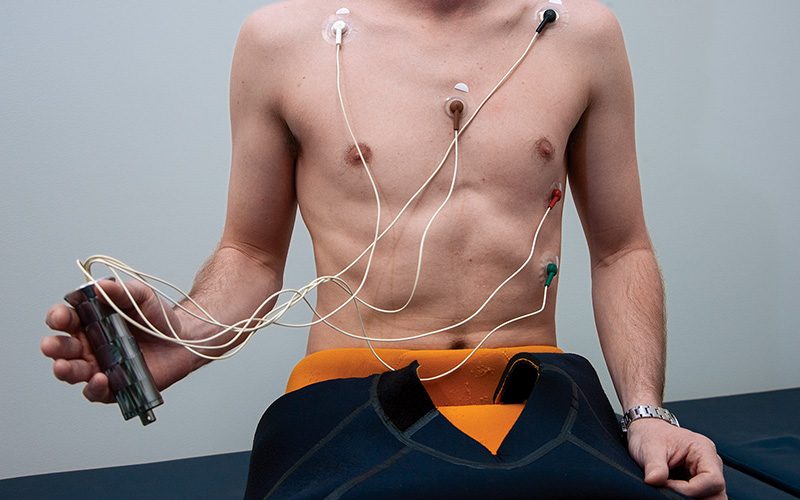As people live longer, they participate longer in recreational sports. Scuba diving sees its share of older participants as both veterans and beginner divers. As happens in other recreational activities, such as golf and jogging, some divers die of cardiac events while diving. However, since diving involves immersion, which requires adaptation of divers’ hearts and cardiovascular systems, there is a possibility that it may cause more deaths than would naturally occur out of the water. Fatalities are rare in diving, but they increase with diver age, and cardiac causes are of particular concern in older divers.
Most of the deaths in older divers that result from cardiovascular causes are unexpected sudden cardiac deaths (SCD), which occur in divers who felt well before the dive. These cardiac events cause up to 400,000 deaths in the U.S. each year; in half of these cases SCD is associated with obvious heart disease, but in the other half it occurs in apparently healthy people, which makes prevention difficult.
One risk factor associated with SCD is abnormal thickness of the left heart wall, which is known as left ventricular hypertrophy (LVH). This condition occurs when the heart has to work against increased resistance as it does, for example, in people who have high blood pressure. (Not all people with high blood pressure develop LVH, and, fortunately, LVH may even resolve when high blood pressure is effectively treated.) The prevalence of LVH in the general population is about 15 percent, but most of those who have it are unaware because symptoms occur only in the most severe cases.

LVH sometimes causes such bad heart rhythms that the heart does not pump enough blood and the affected person loses consciousness. It can also contribute to cardiac arrest, which is fatal without (and often even with) prompt intervention.
The prevalence of LVH in divers is probably similar to that in the general population, but this isn’t known for sure, nor is it known whether diving could increase the likelihood of arrhythmias or SCD in divers with LVH.
In the next two years DAN Research, in cooperation with Dr. Douglas G. Ebersole of Watson Clinic in Lakeland, Fla., will conduct echocardiographic screening of divers for LVH and monitor the rate and electrical activity of their hearts during diving.
We will conduct the study during weeklong dive trips, both on liveaboards and shore-based. We will choose participants from among already-planned trips in which conditions are suitable for research and in which most group members agree to volunteer as study subjects.
Subjects should be willing to undergo health-history interviews, noninvasive echocardiography tests and electrical monitoring of the heart before, during and after some dives. Once the data are analyzed, each participant will receive a summary of findings.
The main purpose of the study is to establish the prevalence of LVH in recreational scuba divers and its effects on the prevalence of arrhythmias during diving. If the study provides evidence that LVH is associated with increased frequency of arrhythmias in scuba diving, LVH may become a target of preventive interventions aimed to reduce fatalities in diving.
© Alert Diver — Q2 Spring 2013